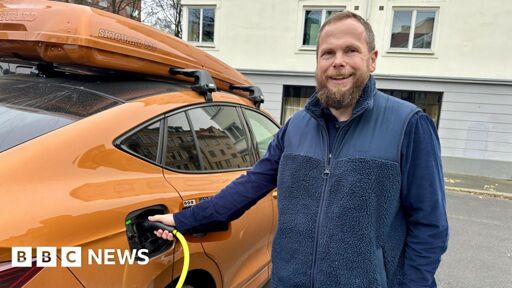Summary
Norway leads the world in electric vehicle (EV) adoption, with EVs making up nearly 90% of new car sales in 2024 and over 30% of all cars on its roads.
This shift, driven by decades of policies like tax exemptions for EVs, higher taxes on fossil fuel cars, and perks like free parking, has put Norway on track to phase out new fossil fuel car sales by 2025.
The country’s wealth, renewable hydroelectric power, and extensive charging network have enabled its EV revolution, serving as a model for other nations.



What are you complaining about? Are you unhappy that Norway takes on many of the issues of going non-reliant of oil, developing systems to handle northern, less benign weather? You know, from where I stand, a few hundred miles south would be a so much easier place to be, where the sun is plentiful all year long and the winters short and mild…
As noted above - Norway gets most of it’s renewable energy from it’s geographic location (88% of power coming from hydro) so them being “a few hundred miles south” would mean extreme heats and droughts that are really difficult to deal with even with perfect renewables - all the sun in the world can’t give you free water (yes there’s desalination but hypersaline brine is such a PIA that it’s not a silver bullet) - so while it’s commendable that they’ve gone “fully green” - until they stop making bank on their massive scope 3 fossil fuel emissions - it’s a bit of a misdirection to say they’re helping the global environment.
Now if they truly believed that fossil fuels were needed for a sustainable transition - then surely they would give out their trillions of oil and gas revenue to countries like Pakistan and Bangladesh to help them rebuild from the environmental disasters they’re experiencing to deploy more sustainable infrastructure and housing.